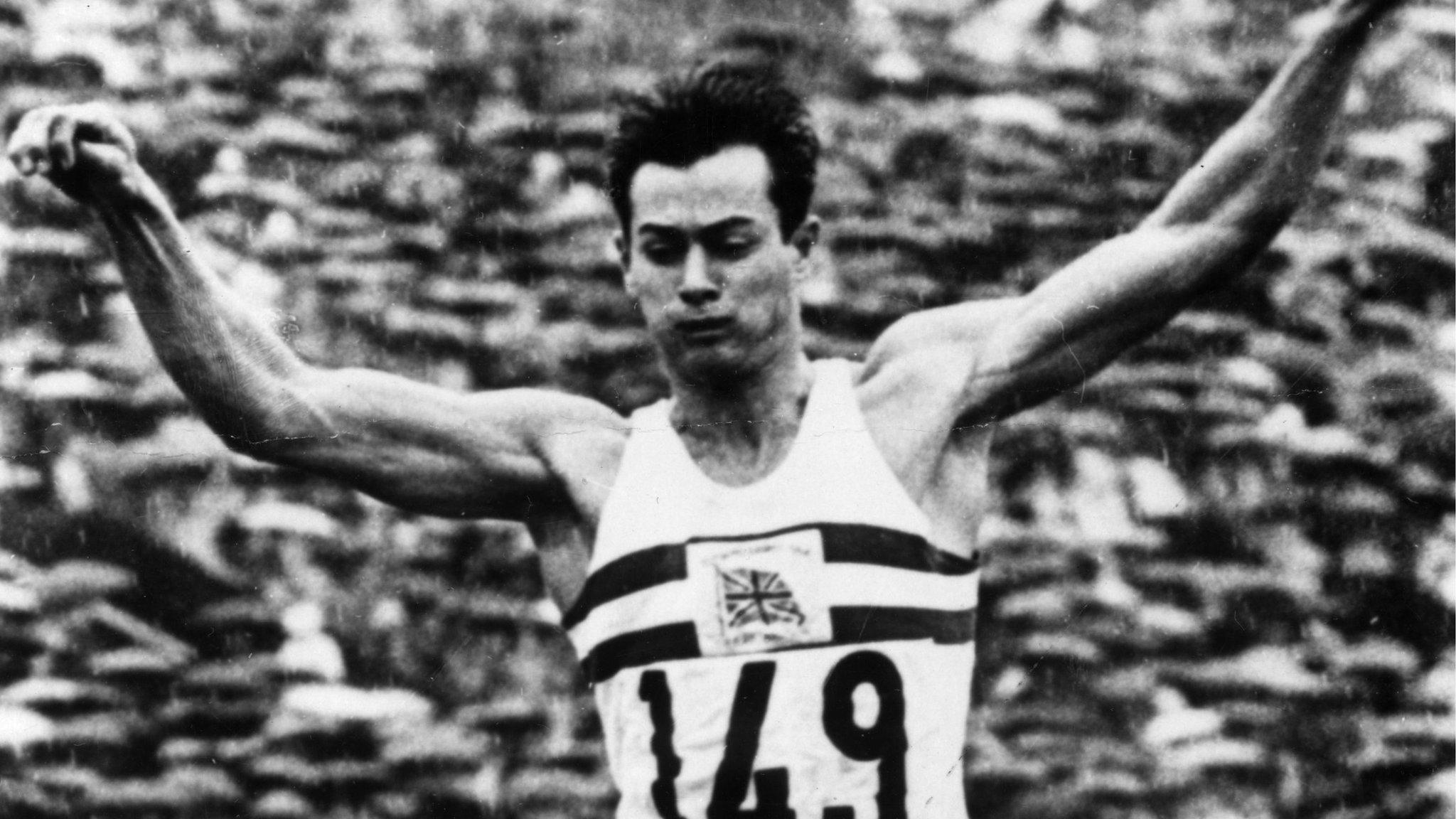Olympic gold: Half of Wales' track and field tally won 100 years ago
- Published
Olympic gold medal win a "marvellous achievement"
Welsh athletes have only ever won four track and field Olympic gold medals - and half came 100 years ago.
Cecil Griffiths, from Neath, and Jack Ainsworth-Davis, from Aberystwyth, triumphed in the 4x400m relay team in the 1920 Antwerp games
Griffiths, then 20, was and remains one of Britain's youngest Olympic gold medallists
However, he would never compete in the games again after receiving a lifetime ban three years later.
His biographer believes this "robbed" him of the chance of adding to his tally in the 1924 Olympics which was immortalised in the film Chariots of Fire.
In 1920, Griffiths was due to compete in the individual 400m event, but dropped out because of illness.
Instead, he built up an impressive lead in the first leg of the relay, with his biographer John Hanna saying: "I have a newspaper article with the headline in The Times that reads 'The Best Runner Wales has Produced'. And I believe that could still be argued today."
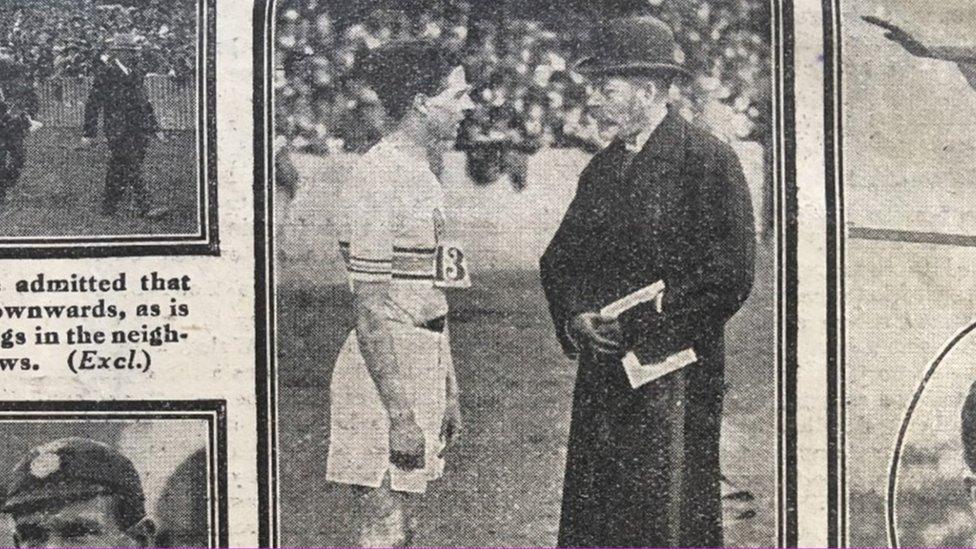
An old newspaper clipping shows Griffiths talking to the King after a race
Mr Hanna, who is also his grandson-in-law, added: "He was right at the start of his career (when he won Olympic gold), so I don't think he realised how big an achievement it was.
"He had a very humble upbringing in Neath.
"He was a real working-class lad who found his way into the British team, no doubt overwhelmed by it all, but a marvellous achievement for such a young man."
Describing it as "a mucky day", he said Griffiths' long stride was the saviour for the British team as he did not have as much contact with the ground as other competitors.
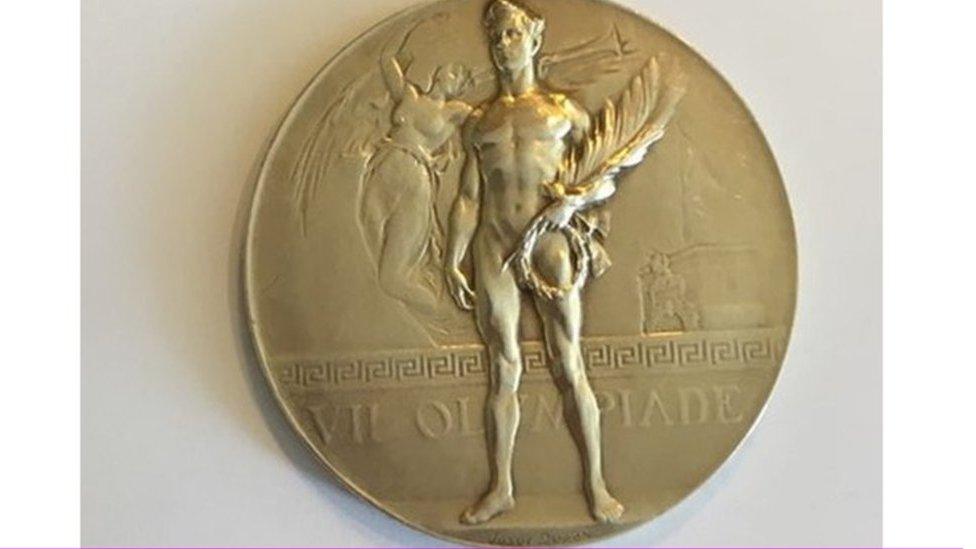
Mr Hanna said David Jacobs' gold was destroyed in a bombing raid and Griffiths' and Lynn Davies' golds are the only ones won by Welshmen that are still known to exist
"He ran the first leg, which was so important because he got a good lead," Mr Hanna added.
"At the exchange, there was a bit of a scrum and some of the athletes went down and fell over but, because he was ahead, he escaped that and the team won it with the three metres he gained in that first leg.
"He was instrumental in the team winning gold."
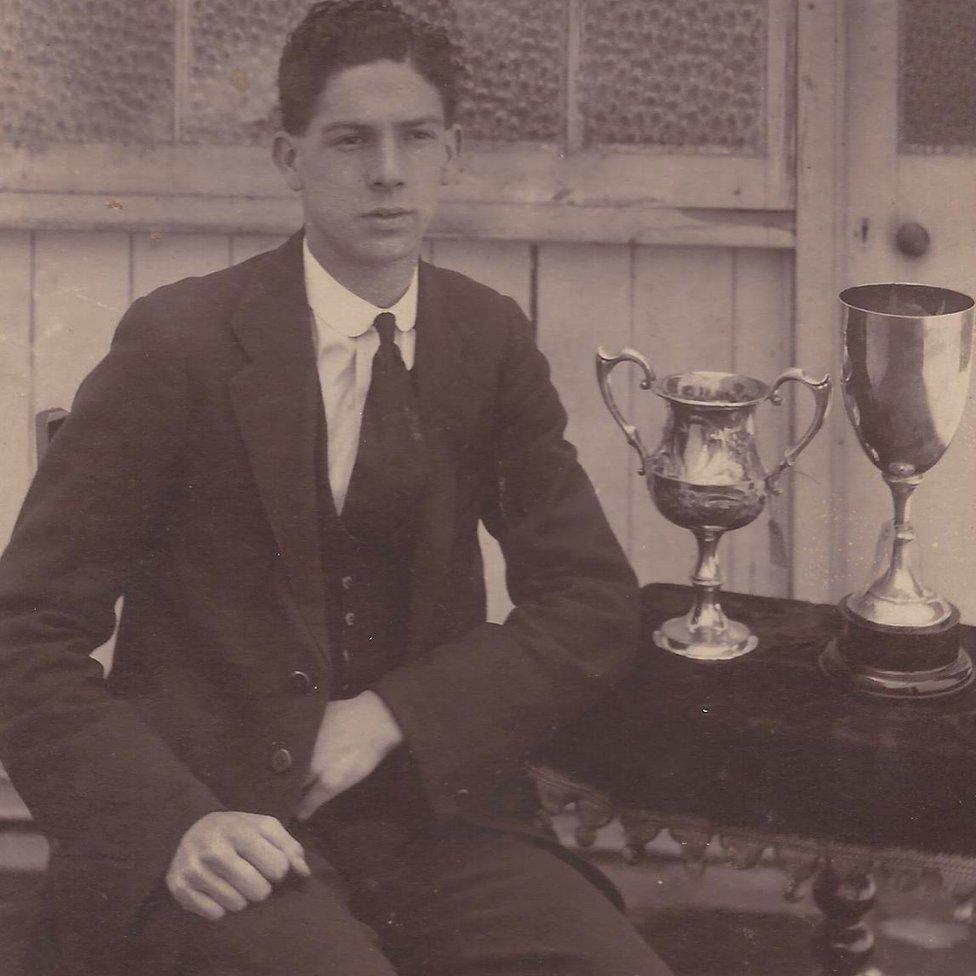
Cecil Griffiths is one of Wales' three all-time Olympic relay gold medallists
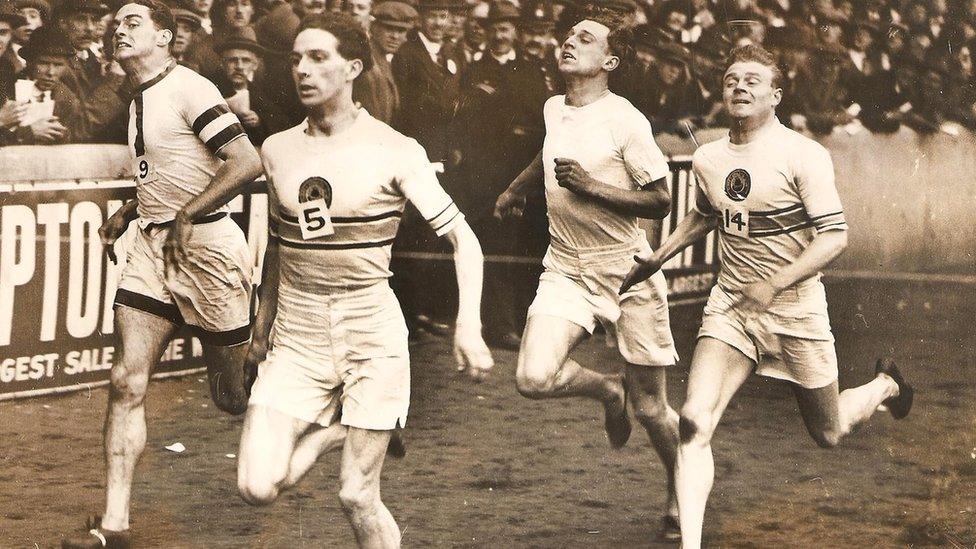
Cecil Griffiths is Wales' youngest Olympic track and field gold medallist
Griffiths was British Champion in the half-mile distance in 1923 and 1925, remained in the top three for nine years, won 10 Welsh titles and his Welsh 440 yards record, set in Barry in 1921, would stand for 32 years.
But he would never compete for Great Britain at the Olympics again.
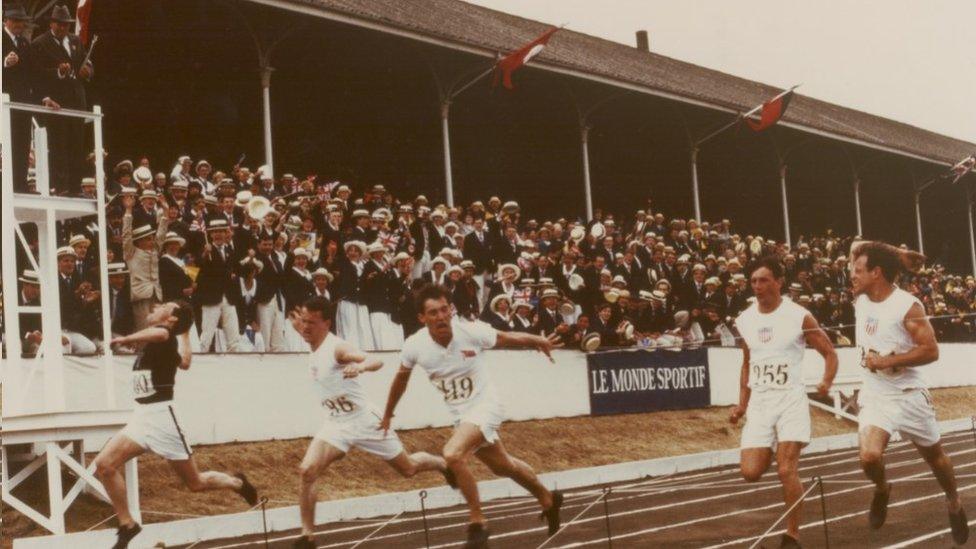
The 1981 film Chariots of Fire immortalised runners from the 1924 Olympics - an event in which Griffiths was banned from competing
In 1923, the Amateur Athletic Association imposed a lifetime ban on him after discovering he accepted cash prizes as a teenager, which contravened their rules.
Mr Hanna said Griffiths had regularly been beating the so-called "Chariots of Fire" athletes from Oxford and Cambridge and the ban was a way "to get him out of their hair".
"They discovered he'd run as a teenager in 1917 at a local event in Neath in a fundraising event for the First World War," he said.
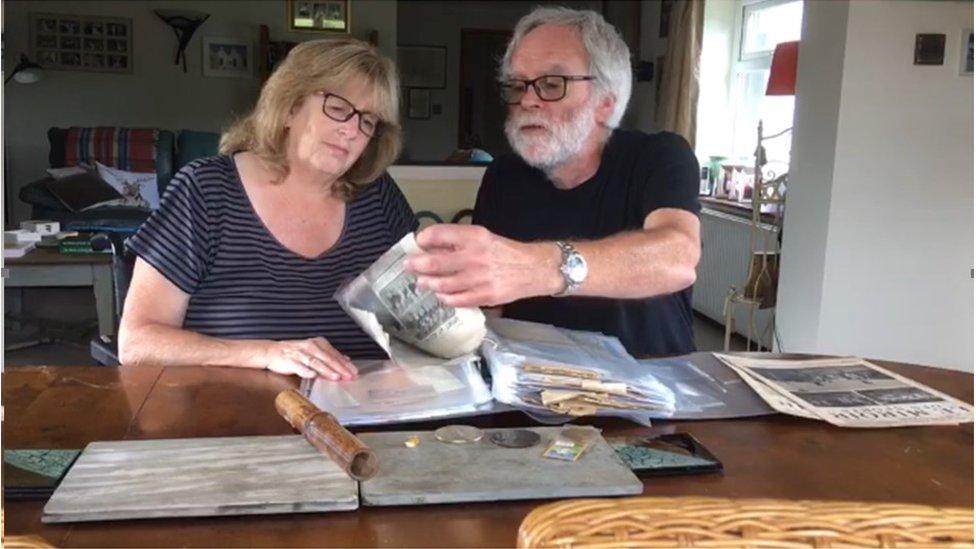
Mr Hanna and Griffiths' granddaughter, Vanessa, look at mementoes they have from his career
"He won a small prize of £2 and he ran again as a 17-year-old at a bigger event in Swansea and won £2 again.
"But In 1923, that was used against him and just before the 1924 'Chariots of Fire' Olympics in Paris they hit him with an international ban."
Douglas Lowe won gold in the 800 metres, someone Griffiths had beaten three weeks earlier, and Mr Hanna said: "We believe he was robbed of at least one more Olympic gold."
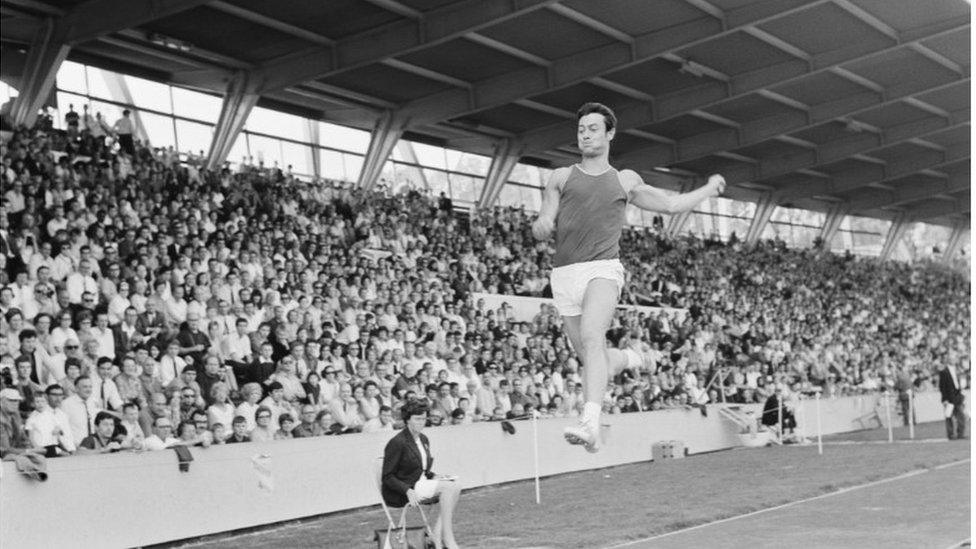
Lynn "The leap" Davies remains the only Welshman to have won an individual Olympics track and field gold
While he was allowed to race in Great Britain, he was banned from competing for the team, which his biographer believes stopped him becoming a household name.
Apart from the 1920 pair, the only other Welshmen to have won Olympic gold in track and field are David Jacobs, who was part of the 4x100m relay team in 1912, and Lynn Davies, who triumphed in the long jump in 1964.
In 1931, facing financial hardship in the Great Depression, Griffiths sold all his medals and trophies apart from the Olympic gold, which the family still treasure.
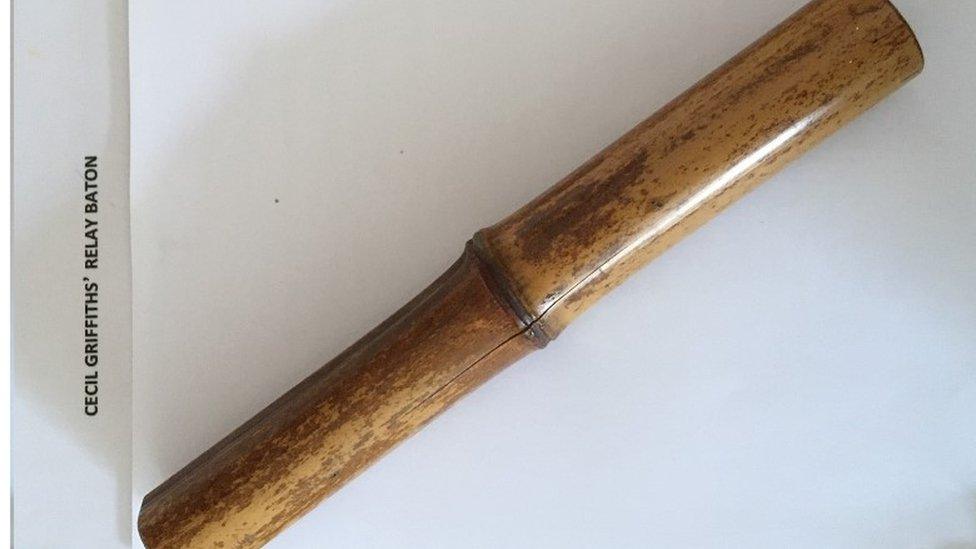
- Published4 August 2020

- Attribution
- Published15 October 2014

- Attribution
- Published18 August 2016
